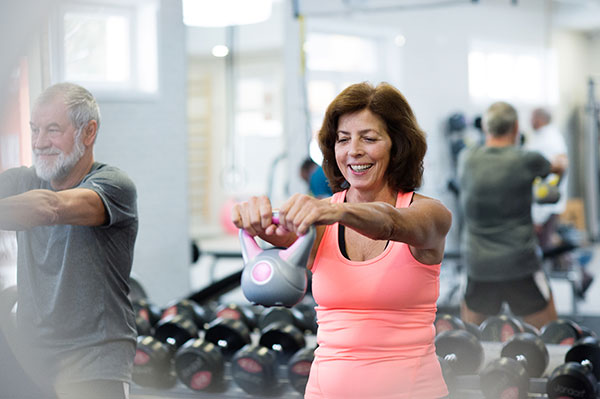The aging process leads to distinct decreases in both muscle mass and strength.
We typically observe these decreases more significantly after the age of 40. But is age the only factor to consider here?
Even though we see this data, context is important. We also see that physical activity tends to decrease with age and this correlates pretty strongly with a loss in muscle mass.
The number one barrier to someone starting a physical activity is cited as “fear of injury”, with over 50% of those who are inactive stating this as their main detractor.
We are constantly fed narratives that as we age the risks of exercise increase as well. As we age we are told to slow down and avoid certain activities.
This completely goes against what the data says.
Lifelong physical activity is what preserves muscle mass with age. And while we may have to modify certain things based on ability and exercise history, the risks of inactivity will always be higher than the risks of being physically active.
We tend to peak in terms of physical ability in our 20s and 30s, but that doesn't mean our training should stop there.
Our own beliefs about how and when we should be active create a self-fulfilling prophecy about our condition.
We're told not to do certain things when it comes to physical activity, and it's this inactivity that exacerbates the age-related decline in muscle mass and strength.
Yes, we should expect some form of decline, but exercise (both aerobic and strength-training) can help preserve strength long past your 30s and 40s.
Age should therefore never be an excuse not to be physically active. If anything it's a reason to take it even more seriously.
To your good health,
-Coach Stephen
References:
Bret H. Goodpaster, Seok Won Park, Tamara B. Harris, Steven B. Kritchevsky, Michael Nevitt, Ann V. Schwartz, Eleanor M. Simonsick, Frances A. Tylavsky, Marjolein Visser, Anne B. Newman. The Loss of Skeletal Muscle Strength, Mass, and Quality in Older Adults: The Health, Aging and Body Composition Study. J of Gerontology. 2006. 61: 10(1059-1064)
Jaime LLaurinJustin JReidMarcus MLawrenceBenjamin FMiller. Long-term aerobic exercise preserves muscle mass and function with age. 2019. J of Physiology. 10 (70-74).
Karsten Keller and Martin Engelhardt. Strength and muscle mass loss with aging process. Age and strength loss. MLTJ. 2013. 3(4): 345-350.
LaDora V. Thompson, PT, PhD. Skeletal Muscle Adaptations with Age, Inactivity, and Therapeutic Exercise. J of Ortho and Sports Therapy. 32(2): 44-57.







